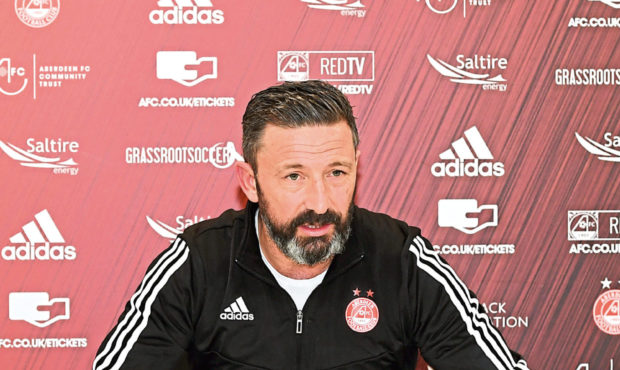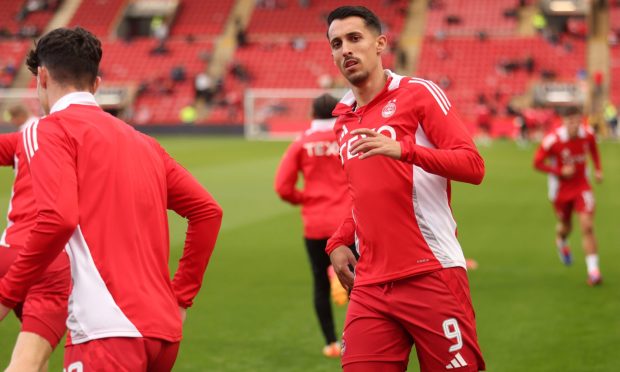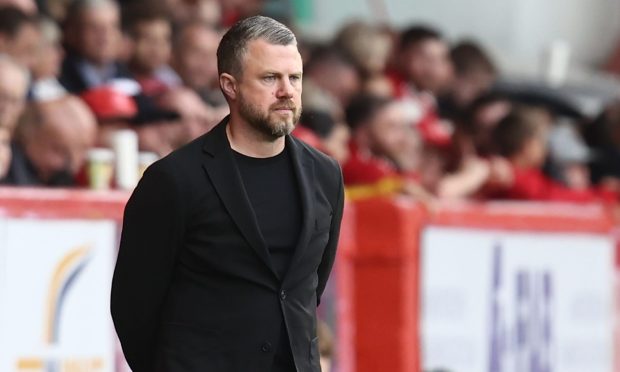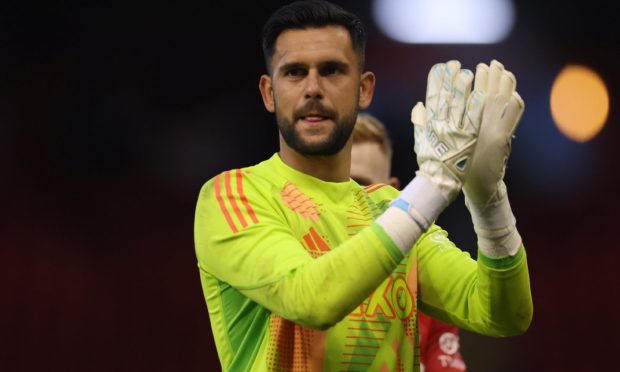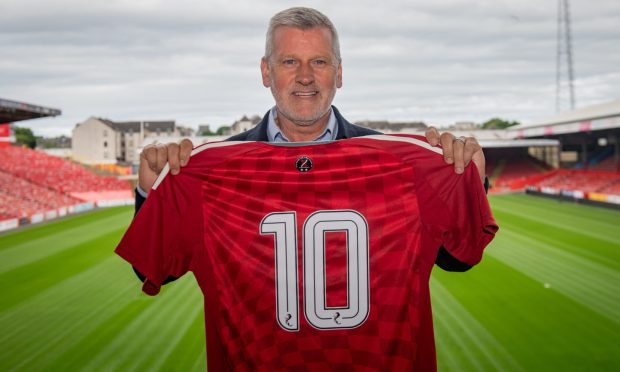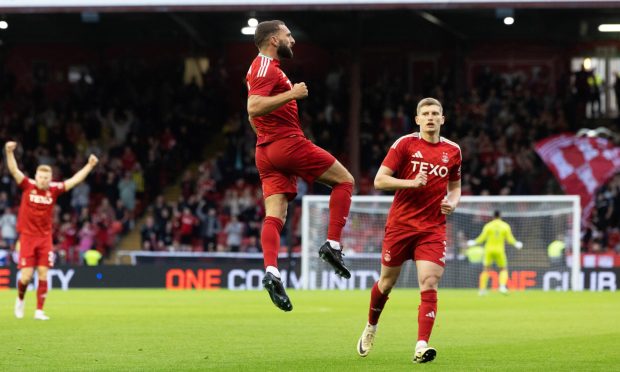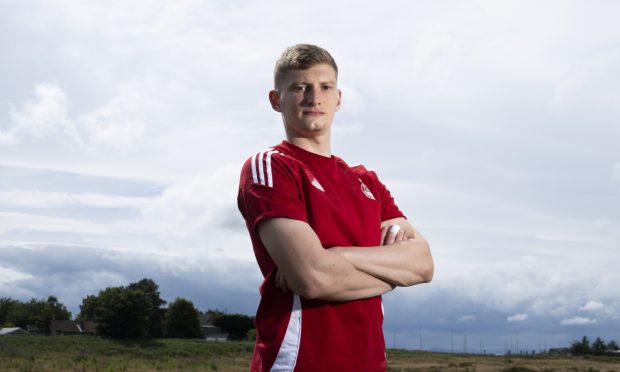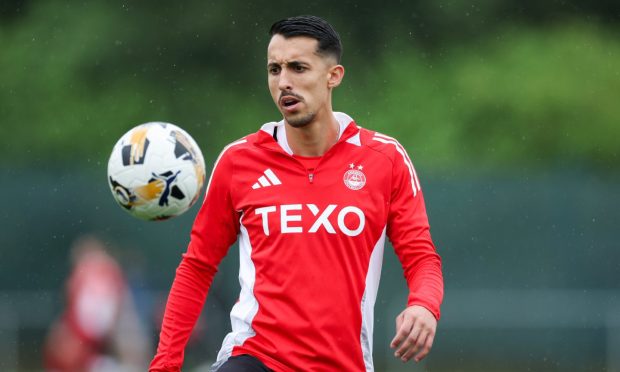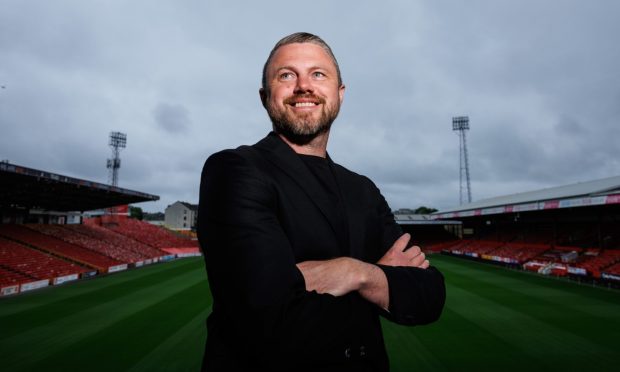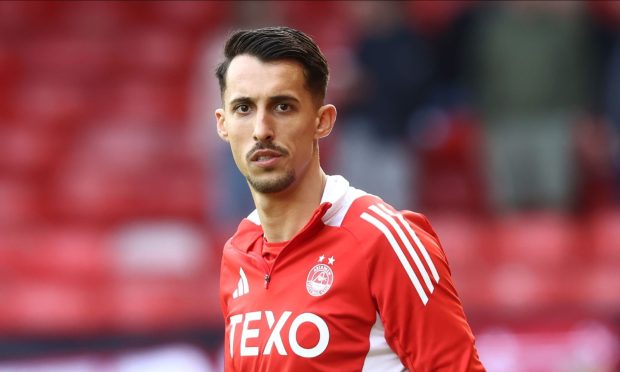Aberdeen manager Derek McInnes is grateful the Dons board did not wish to go down the route of putting his players on furlough.
Fellow Scottish Premiership side Ross County opted to use the UK Government’s job retention scheme, which pays 80% of salaries up to £2,500 per month.
The Staggies will contribute the remainder to ensure no player is out of pocket.
The Dons have opted for a different approach as they try to tackle the financial problems caused by the coronavirus crisis.
McInnes, his coaching staff and the Dons players have instead agreed to defer between 10% and 30% of their wages for four months in a bid to ease the club’s cashflow problems.
Dons chairman Dave Cormack estimated the Scottish football shutdown would leave the club with a £5 million shortfall.
The wage deferrals will save the club £1.1m while £2m of funding has also been secured from a group of investors, which includes Cormack.
McInnes said: “We haven’t furloughed the players because we want to keep them in a routine and keep in contact with them.
“The coaching staff still have their roles to do so everyone is working.
“Because there has been no decision made on when football is going to start again I think we have to keep in that mindset.
“I don’t think right now we can go dark on the players, furlough them and have no contact for a few months.
“While the club have benefited from the furlough system in other areas, we felt the playing side needed to be kept in contact with each other.
“If it was two months without it, and we are back training in June – which is still possible at the moment – then I don’t think that would be the right thing to do.
“Thankfully Dave and the board agreed with that.
“Where we are is trying to remain as professional as possible in these challenging circumstances.
“That means doing what we’re asked by the government in terms of social distancing and isolation, but trying to keep them ticking over as athletes at the same time.
“That one window we have each day allows them to go out for their run and the second session we are doing is indoors.
“They are doing that in their own homes before we give them the weekends off.
“So we are trying to get a balance between being responsible in terms of the wider issue of dealing with the virus, but also stressing the importance of them continuing to do the things they should be.”
McInnes has been impressed with how hard his players have been working on their individual training plans.
He said: “All the lads have been on a platform which we can administer and oversee what they are doing.
“We can see online what they’re doing and what output they have been putting in, which has been great.
“The players have showed great discipline, which is what I expected of them anyway.
“We train four days a week, three of them being double sessions.
“We want to keep them in a routine because it’s the best thing for them physically and mentally.
“I think that is a big part of it as well because it has been a shock to the system. Life isn’t what it normally is like for everyone at the moment.
“When you have been a trained animal like a professional footballer for a long time and then for it to suddenly stop, it’s not ideal. So I am a great believer that keeping as normal a routine as possible under the circumstances is going to be very important for them.”
Aberdeen’s three long-term injury absentees – Greg Leigh (fractured tibia), Scott Wright (knee ligament damage) and Scott McKenna (hamstring) – are also using the break in fixtures to step up their recovery.
He said: “Greg, Scott Wright and Scott McKenna are all working hard under the supervision of the physios.
“Scott Wright was getting back but he needed full training before we could open him up to playing games.
“Greg was similar because he had suffered a stress fracture so he couldn’t put too much load through it.
“Scott has been on Facetime to the medical staff and has been going to a local pitch near where he stays to do the work he needs to do.
“He is able to do that in isolation while keeping close contact with the staff and that’s important.
“All three of them will benefit from the extra time but it’s frustrating because they want the prospect of games.
“We have to keep them as close to the plan we would have had for them if we were playing because it’s important when you are recovering from an injury.
“It has been a challenge but with modern technology it’s certainly a lot simpler than it would have been even a few years ago.”
